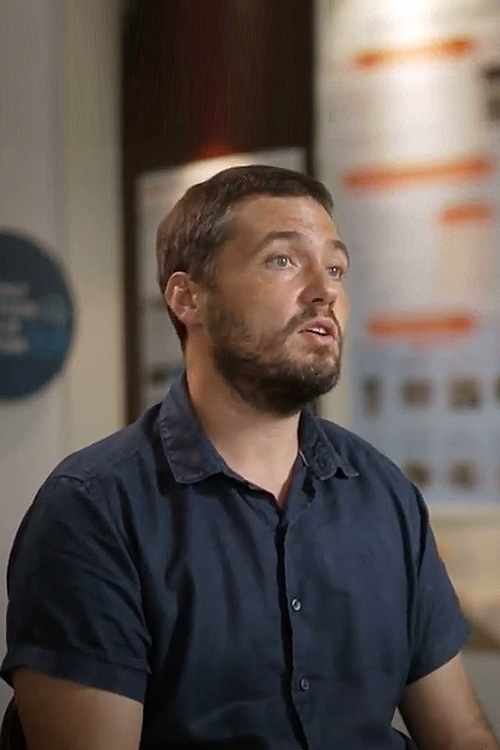
Impact
Food security is an existential concern for Singapore. The development of tropical aquaculture is a priority area for nutritious sources of fish protein production. Transforming the sector with better technology adoption, farm practices, research and innovation, the lab aims to address real world aquaculture challenges to enhance the productivity of farms and the quality of fish farmed in Singapore. The focus on nutrition, health, system sustainability and genetics are applied to the design of processes, software and mechanics that increase the efficiency and productivity of farm operations for the aquaculture industry.
Collaborations, Achievements & Honours
- Conducted new feed intake modelling and analysis in Asian Sea Bass
- Investigated digestibility estimates of black soldier fly and algae meals in contrasted extrusion conditions with Asian Sea Bass
- Developed optimum modelling of Asian seabass fish density and feeding rate in Recirculatory Aquaculture System (RAS)
- Formulated 75% non-fish-based aquafeed for optimum growth in Asian Sea Bass
- Mass produced the 6th generation Saline Tilapia (Oreochromis Mossambicus) identified via selective breeding
- Improved feeding protocols to achieve 30% increase in growth across Asian Sea Bass farms, including raising productivity, profitability and sustainability levels
- Collaborated with Louis Dreyfus Company and Barramundi Asia on aquafeed research
- Granted research for the cryopreservation of microbial communities in tropical aquaculture
- Granted research for high quality microbial protein production in sustainable bio-platform
- Donated 1.4 tonnes of food fish to charity drives in light of the COVID-19 pandemic
Research Areas
Tropical Aquaculture, Ecological Biology, Genetics & Genomics
Affiliations
- Director, Department of Precision Aquaculture, TLL
- Director, Commercial Strategy for Aquaculture, TLL
- Fellow, Research and Industry Programme in Aquaculture, Aquapolis
- Member, European Federation of Animal Science (EAAP)
- Member, Association Française de Zootechnie (AFZ)
- Member, World Aquaculture Society
Question
How can the sustainability of aquafeed be enhanced to maintain farm productivity? Will the processing of alternative ingredients affect the digestibility and nutrition of farmed food fish? How can husbandry practices maximize aquaculture productivity without compromising aquatic welfare?
Approach
Two genetically-selected populations of food fish, the Asian Sea Bass (Lates Calcarifer) and Saline Tilapia (Oreochromis Mossambicus), are deployed to examine how animal husbandry practices, specifically density and feeding rates, affect both respiration and feed intake in tropical aquaculture. The large-scale research approach adopts fine O2 modelling in tropical seawater RAS, equipped with 32 oxygen probes to simulate commercial farming closed systems conditions.
The lab combines several approaches that span across close collaborations with local farmers and research organisations, in particular the Singapore Food Agency’s Marine Aquaculture Centre. These are key to providing updated questioning, biological material and technical support. For instance, the R&D feed mill at Aquapolis provides new findings on how extrusion processing parameters affect the digestibility of non-fish-based aquafeed in tropical aquaculture.
The work also seeks to expand the understanding of enhancing local and regional food security with biosecurity measures, fish biology and genetics. Discoveries from Richard’s lab hold great promise for optimizing sustainability in the future of tropical aquaculture.
Bio
Richard grew up in France, earned his agronomy engineer’s degree in aquaculture from Ecole Nationale Superieure Agronomique de Rennes (ENSAR-ENSAIA), Doctor of Philosophy in quantitative genetics and nutrition at AgroParisTech, and Master of Business Administration from École des Ponts ParisTech.
As an undergraduate investigating probiotic and hatcheries at The Southeast Asian Fisheries Development Centre (SEAFDEC) in the Philippines, Richard developed a keen interest in addressing the combined goals of food safety, environmental sustainability and social responsibility in tropical aquaculture. He also implemented breeding programmes with French aquaculture farmers at the French Poultry and Aquaculture Breeders’ Union (SYSAAF).
In 2013, Richard founded Genotop, an independent aquaculture genetics company assisting hatcheries and farms in breeding programmes. The enterprise was soon acquired by IMV Technologies Group, a significant player in veterinary and medical reproduction biotechnologies, as well as veterinary imaging. Richard then oversaw research, development and marketing of various aquaculture products. He developed mass cryopreservation practices in salmon hatcheries in Chile, Norway, Iceland, France, USA, Thailand, and China, as well as led disruptive innovative projects in biochemistry, micro-mechanics, cytometry, electronics, software and fluidics. These include high-speed sorter for salmonid eggs, pneumatic device for handling cryopreserved straws, microfluidic cell scanner, bioencapsulation gel for spermatozoa, and an antibiotic-free cleaning agent for salmon oocytes.
Richard joined TLL as Director in 2020. He specializes in conducting research related to nutrition, genetics and farming systems. He also leads commercial strategy for aquaculture at the institute.
Speaking Opportunities
- 2022 World Aquaculture Conference
- 2022 Hatch Riverside Chat
- 2022 Norway-Singapore Science Week
- 2021 International Symposium on Fish Nutrition and Feeding
- 2021 Aquaculture Innovation Centre Symposium
- 2021 IPI Aquaculture Innovation
- 2021 Singapore Food Agency Webinar
- 2021 Marine Science Research & Development Programme
- 2021 Israel-Singapore Agri-Food Exchange
- 2020 Temasek Life Sciences Accelerator Webinar
- 2020 Bioeconomy Key Enabling Technologies Webinar
Principal Investigator & Director, Commercial Strategy (Aquaculture)
Richard Le Boucher
The lab seeks new methods of understanding, detecting and formulating aquaculture technologies, practices and nutrition.
Current Vacancies
-
Dr Le Boucher Richard Group: Postdoctoral Position
23 January 2025 -
Dr Le Boucher Richard Group: Postdoctoral Position
16 October 2024
Sorry, no posts matched your criteria.